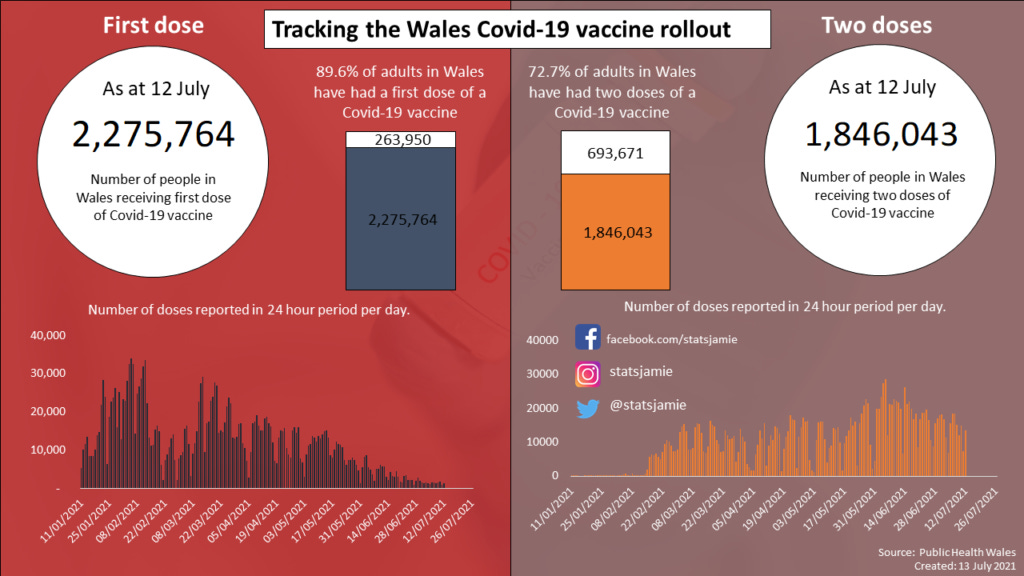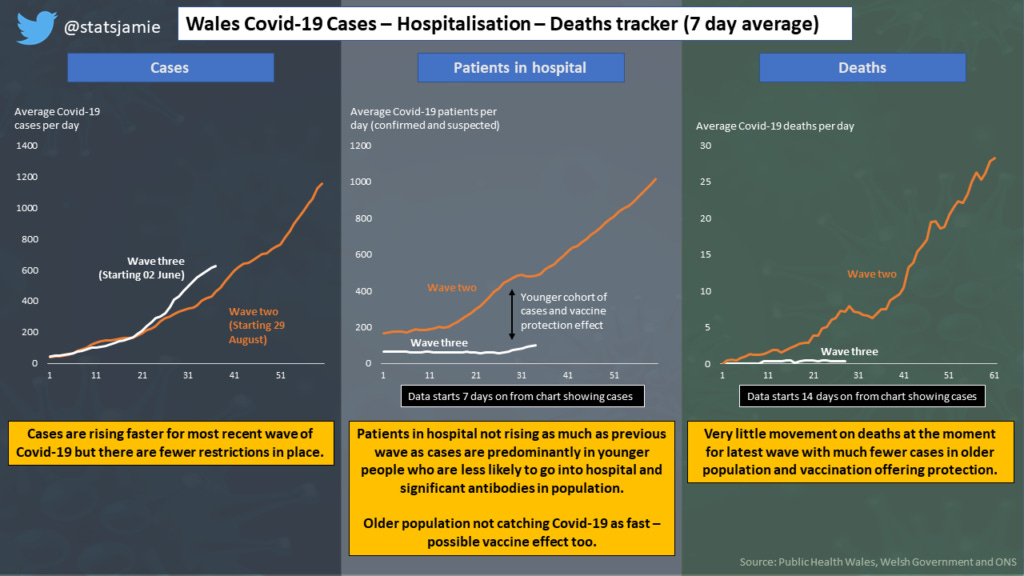Wales deserves its own Freedom Day and we need to accept Covid-19 is here to stay
Since Covid-19 hit the shores of the United Kingdom back last year, it was the Prime Minister (Boris Johnson) who instigated the first national lockdown across the four nations. The Welsh Labour Government took over policies related to easing and imposing new restrictions and the data now suggests we need to learn to live with Covid-19 and have our own ‘Freedom Day’ in Wales.
If we look at the approach of Mark Drakeford, when cases have risen he imposes restrictions, and when they fall it takes a while to give freedoms back. Since introducing the national lockdown last December we are still not out of significant restrictions. As I write this (13 July 2021) there are limits on who you can let into your own home and the thought this just a few years ago would be laughable.
Since the beginning of June, we have seen rises in cases of Covid-19 across Wales, driven by the Delta (formerly Indian) variant. Cases have increased predominantly through younger people, although the rates in older people have ticked upwards. Applying the previous logic you would expect an announcement this week of further restrictions in Wales. But we are not where we were in the past because of the rollout of the Covid-19 vaccine along with announcements over the border in England and also in Scotland.
Vaccine rollout
The vaccine game-changer means the population of Wales has significant antibodies. Almost 90% of adults in Wales have had the first dose of a vaccine with 73% having had both doses. Notably, for several weeks, those at the highest risk from the virus have had both doses.
There is little point in a vaccine rollout and lauding over its success, as the Welsh Government often does, giving none of the benefits the vaccine brings, such as a return towards a normal life. We know from looking at the data that the vaccine has broken the link between Covid-19 cases, hospitalisations, and deaths. A vaccine does not stop someone from getting ill, nor does it stop someone from catching it, but it significantly reduces the chances of infection and for those infected reduces the chance of spreading the virus and getting seriously ill.
Comparing the data on cases, hospitalisations and deaths for the most recent wave that started early June and the second wave that started around the end of August we see fewer people in hospital with Covid-19 than previously in relation to the number of cases, and hardly any deaths. This is down to several factors, firstly most of the rise in cases are among younger people who are less likely to end up in hospital. Second, we are not seeing the link in a rise in cases in older people in relation to younger people, possibly because of the vaccine. Third, with significant antibodies in the population, those who succumb to the virus are less likely to fall seriously ill and die.
Living with Covid-19 risk alongside other factors that cause harm
I have previously written we need to live with a level of Covid-19 risk and the deaths that come with it. The most recent figures from the Office for National Statistics show there were over 969 deaths registered in England and Wales in the week ending 02 July 2021, where pneumonia or flu was mentioned on the death certificate – 9 times the number where Covid-19 was mentioned (109).
We do not issue daily updates on how many deaths where there were positive tests for pneumonia or flu and there were more deaths linked to Covid-19 in Wales on one day in January than every day since the start of April combined.
Covid-19 is not going anywhere and with this being endemic across nations all over the world, the risk of new variants will always be there. We manage new variants of influenza through vaccine modification. It is now time to offer some hope of a return to normality by embracing the significant level of antibodies in the population and give Wales its very own Freedom Day. With that will come with a rise in infection and inevitably a rise in deaths but Covid-19 is something we now have to live with along with the risk it poses. Removing restrictions does not create a risk-free society and individuals are free to choose where they socialise. We cannot hide any longer from a virus that is here to stay.


